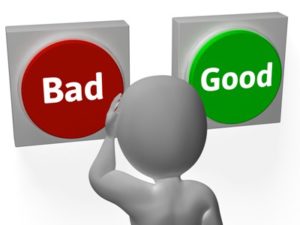Drug treatments by mouth
….for premature ejaculation include selective serotonin reuptake inhibitors (SSRIs) and clomipramine, which is a tricyclic antidepressant.
There are a few other compounds, like Viagra (PDE-5 inhibitors) and tramadol, which are also reviewed here since they are the subject of current research.
Clomipramine
Clomipramine is a tricyclic antidepressant whose effectiveness in the treatment of premature ejaculation was demonstrated as long ago as the mid 1970s.

As reported elsewhere on this website, Waldinger has shown that if it is used on a daily basis, clomipramine has the ability to increase the length of time between penetration and ejaculation by 4.6 times. This mirrors the results from sertraline or fluoxetine.
Clomipramine must be used between three and six hours before intercourse: clomipramine 25 mg produces a 4 times increase in intra-vaginal ejaculatory latency time.
Unfortunately, an adverse side effect is nausea which lasts for two days – on the day the drug is taken and the day after it is taken.
There are also certain criteria which apply to the men who take this drug, and which have been shown to be the conditions which make it most effective (i.e. they are satisfied with sex as demonstrated by a self-rating of five on a seven point scale, and they ejaculate twice or more each week).
SSRIs for treatment
SSRIs are not approved for the treatment of PE, although they are commonly prescribed.
They delay ejaculation in between 30 and 50% of men, and at the moment, there are four varieties which find a sue in this way: fluoxetine (Prozac), sertraline (Zoloft), paroxetine (Paxil), and citralopram (Celexa).
Other SSRI’s are not effective at increasing the duration of sexual intercourse; the producers of Dapoxetine – a related compound – have tried to obtain (but been denied) formal approval for the drug to be listed as a treatment for this sexual dysfunction.
The delaying effect of paroxetine on ejaculation was first recorded in 1994 and has been confirmed many times since.
The absence of regulatory approval may well relate to the fact that a drug should not be marketed for the effectiveness of its side-effects rather than its main treatment purpose (which is, of course, depression).
Having said that, this set of drugs is pretty well tolerated by men with premature ejaculation, who seem to have a different side effect profile than men with depression on these drugs.
However, one has to ask if these are desirable side-effects: yawning, nausea, perspiration, fatigue and loose bowel movements!
Even if, as is claimed, these adverse effects gradually disappear with use, ingesting these antidepressives seems like one of the most dramatic ways possible to try and prevent premature ejaculation!
Furthermore, some men using these drugs to gain a longer period of sex will experience much worse symptoms, which include SSRI discontinuation syndrome, diabetes, bleeding, and so on.
It seems ironic that all of this can lead to a claim that these drugs are known to be efficient in controlling rapid ejaculation. But there are still researchers asking whether they should be taken daily or on-demand (i.e. when sex is planned)!
Dr Gerald Brock, a prominent Canadian sexual health doctor and renowned urologist, has made the observation that prescribing SSRIs for premature ejaculation treatment is now becoming more common in Canada. In the absence of specifically approved treatment methodologies and drugs approved for this purpose, SSRIs such as sertraline and paroxetine are now offered to patients as well as some non-SSRIs such as clomipramine.
Many men do not seek treatment for this potentially embarrassing condition, and many others are not offered good treatment when they do…….so are prescription drugs an appropriate therapy anyway?
SSRIs & side effects
Dr Brock has observed that SSRIs can be effective, but like many others working in the field points out the side effects.
For one thing, they have long half-lives – a measure of how fast the drug decays in the body – and of course they are not designed for premature ejaculation ejaculation.
The side-effects can include nausea and fatigue. Much worse, though, these drugs can apparently cause ejaculation failure and even complete impotence. The Annals of Pharmacotherapy has reported that citralopram withdrawal can actually causea man to ejaculate faster!
Clearly, therefore, drug treatment is only part of the answer.
Dr Brock states that a three-pronged approach is needed: this is an important medical issue and needs careful treatment and the men who have it deserve to be taken seriously.
This three pronged approach involves education, so any stigma attached to seeking treatment is removed; then the recognition that sexual therapies and psychotherapy can be effective in helping to cure PE; and finally, the carefully considered administration of SSRI prescriptions, perhaps with psychological therapy.
Needless to say the drug companies are working hard in finding a side-effect free drug to treat PE, though as yet they do not seem to have made much progress.